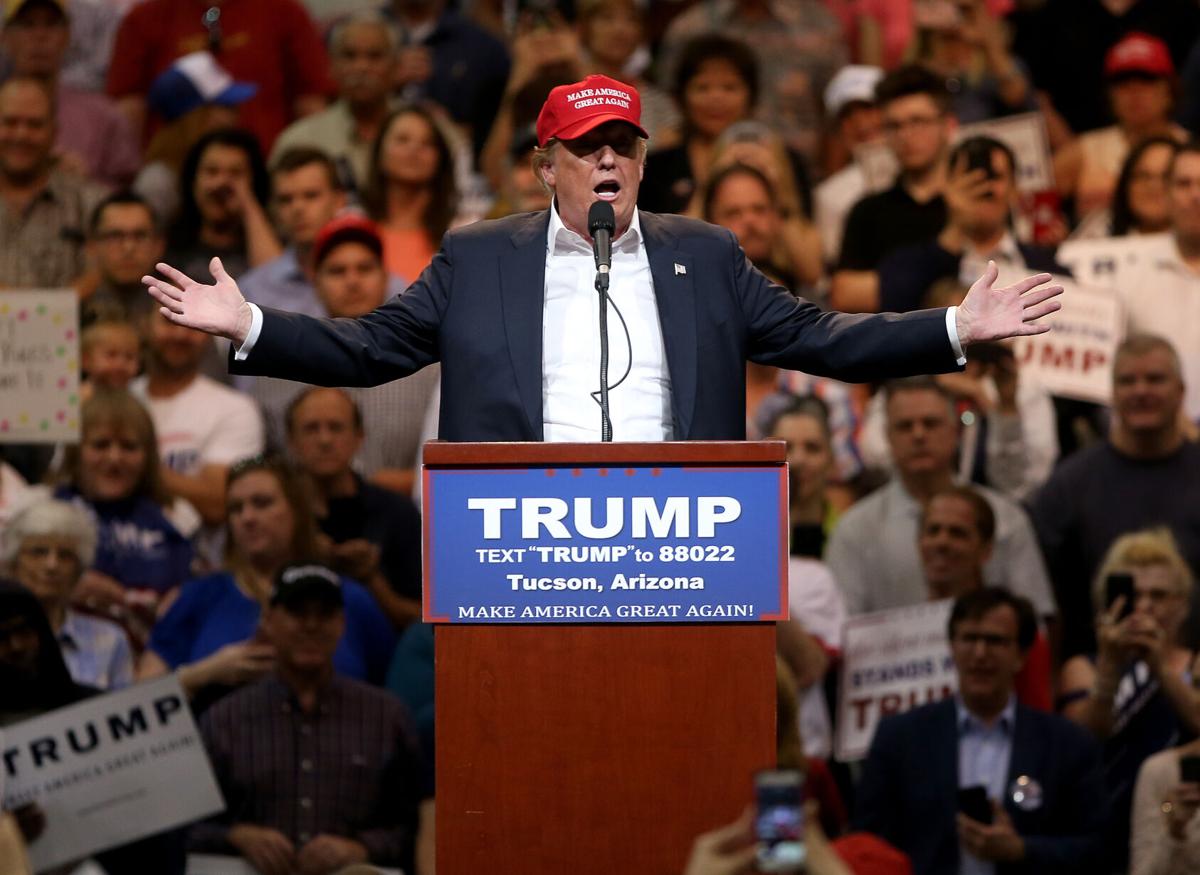Prescott Valley officials expect crowds when former President Donald Trump brings his Save America PAC to a political rally there on July 22.
What they don’t expect is payment: Prescott Valley — like Phoenix before it — says police protection is just part of what cities do, and they do not bill for it.
A spokesperson for Prescott Valley confirmed this week that the town “will provide the police and traffic control coverage normal to any large event in the community,” but that other costs related to the use of Findlay Toyota Center are handled by an outside management company.
That’s not the position that was taken by Mesa and Tucson, which sent bills totaling more than $146,000 of services for Trump rallies in 2016 and 2018, bills that were never paid.
“The mayor and council wanted to protect the community’s taxpayers from the really exorbitant amount of security costs related to these events,” said Lane Mandle, chief of staff to the Tucson city manager, of the March 2016 campaign event staged by Trump who was a candidate for president at the time.
The Prescott Valley rally was originally set for July 16 but Trump postponed it on Friday, citing the death of his first wife, Ivana.
The rally now is set to occur at 7 p.m. Friday, July 22.
Trump won’t be appearing as a candidate there, but will instead rally support for the Republican candidates he has endorsed in Arizona. Those include gubernatorial candidate Kari Lake, Senate hopeful Blake Masters and secretary of state candidate Mark Finchem, among others.
It is being organized by his Save America Political Action Committee, ahead of Arizona’s Aug. 2 primary elections. It’s not clear how many people will turn out for the event at the 6,000-seat arena.
When then-candidate Trump appeared in Tucson in 2016, city officials deployed 180 police officers inside and outside the Tucson Arena at an estimated cost of $81,000, which was charged to the Trump campaign. That bill remains unpaid.
Trump was president when he appeared at an October 2018 “Trump — Make America Great Again” rally at the Mesa-Gateway Airport. Mesa said it does not bill for presidential security, but it did try to recoup public safety costs for such things as crowd and traffic control at events.
The city sent the Trump campaign a bill for more than $64,000, which included costs for “barricades, security and towing.” The bill was not paid, and Mesa officials later said the campaign “is not legally obligated to cover the costs.”
That argument has been used by Trump’s campaign and others. Tucson officials said they also tried to bill the campaign of 2016 Democratic presidential hopeful Bernie Sanders, but never collected.
The rationale for non-payment by both Trump and Sanders was that their campaigns never agreed to nor were obligated to pay for police protection at the Tucson Convention Center as part of their licensing agreements, and they did not request special services from police outside the center.
Trump’s campaign also said that it was “frustrated by the refusal of Tucson Police to do anything to control the violent and angry protestors outside of the convention center.”
After several unsuccessful collection attempts, Tucson gave up.
“Ultimately the city determined that we would be unlikely to prevail on any legal action to collect the money so we stopped trying to collect on that,” Mandle said.
Tucson and Mesa are not alone. The Center for Public Integrity in 2019 identified eight other cities across the country that it said were trying to claim a total of about $700,000 from the Trump campaign.
But other cities see the cost of public safety services as part of a community benefit. That includes Phoenix, which has hosted Trump rallies in the past but has not billed for public safety expenses.
“Anytime there is a large-scale event in Phoenix, the city takes an all-hands-on-deck approach and our priority is the continuity of service to our customers and the safety and security of all residents and visitors within the community,” said city spokesperson Dan Wilson.
The Federal Election Commission confirmed that there is no requirement “for congressional or presidential campaign committees to pay for expenses incurred by a state or local municipality in connection with a federal officeholder’s or candidate’s campaign event.” If candidates do foot the bill, they are allowed to use campaign funds to pay security costs, the FEC said.
Mandel said that due to the experience of not getting paid by either campaign for the 2016 rallies, Tucson has since changed the licensing agreement and policy for its convention center. Not only are event organizers responsible for all costs including security costs to use the convention center, they now must pay the costs in advance to be given access to the facility.





